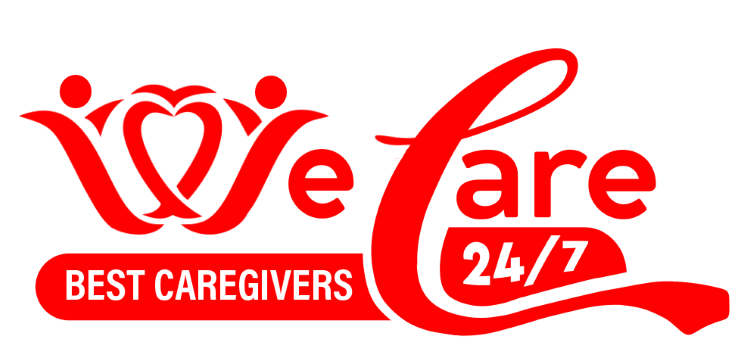How We Found Support: Our NJ Early Intervention Story

Navigating Early Intervention in New Jersey: A Family’s Path to Support
As a leading New Jersey home care agency, WeCare Home Caregivers understands that caregiving journeys come in many forms, each with unique challenges and triumphs. While our primary focus is supporting seniors and individuals with disabilities in their homes, we recognize that families often navigate complex systems to ensure their loved ones receive the best possible support. One such system, vital for many families across our state, is the New Jersey Early Intervention System (NJEIS).
This post shares a family’s perspective on accessing and benefiting from early intervention services right here in New Jersey. It’s a story of recognizing developmental needs, seeking professional guidance, and finding comprehensive support that made a profound difference. We hope this insight provides clarity and encouragement to parents, adult children researching options, and fellow caregivers who may be on a similar path.
Understanding Early Intervention in New Jersey
The New Jersey Early Intervention System is a statewide program designed to provide services to infants and toddlers, from birth to age three, who have developmental delays or disabilities. Its core objective is to enhance the development of these children and minimize potential delays through coordinated services.
These services are tailored to each child and family, focusing on promoting skills in various areas, including cognitive development, physical development, communication, social-emotional growth, and adaptive skills. For families across New Jersey, understanding this system is the first step toward unlocking valuable support.
What Does Early Intervention Offer?
The range of services available through NJEIS is comprehensive, designed to address a child’s unique needs. This personalized approach means that interventions are never one-size-fits-all, but rather thoughtfully constructed to yield the most benefit.
- Developmental Assessments: Expert evaluations determine a child’s specific developmental status and needs.
- Therapies: This can include physical therapy for gross motor skills, occupational therapy for fine motor and daily living skills, and speech-language therapy for communication.
- Special Instruction: Focused teaching strategies designed to help children acquire new skills and behaviors.
- Family Training and Counseling: Empowering parents and caregivers with strategies and resources to support their child’s development at home.
- Service Coordination: A dedicated service coordinator helps families navigate the system, access services, and ensure continuity of care.
Our Family’s Journey: Recognizing the Signs
Our journey with early intervention began, as it does for many families, with a sense of quiet observation. We noticed our youngest child wasn’t meeting certain developmental milestones within the expected timeframe. While every child develops at their own pace, there were consistent patterns that prompted us to seek professional advice.
For example, at 14 months, our child was not yet consistently babbling or making eye contact when spoken to. Simple gestures, like waving goodbye or pointing to desired objects, were also absent. These weren’t isolated incidents, but rather a collection of small signals that, when put together, suggested a deeper look was warranted.
It’s natural for parents and caregivers to have questions or concerns about a child’s development. Our experience taught us that trusting your instincts and seeking early consultation can make a significant positive impact. Delaying intervention can sometimes mean missing a critical window during which a child’s brain is most receptive to learning and development.
Taking the First Step: Referral to NJEIS
Once we acknowledged our concerns, the next step was to understand how to access help. In New Jersey, the path to early intervention typically begins with a referral to the New Jersey Early Intervention System. This can be initiated by parents, guardians, medical professionals, or any concerned individual.
The state has a ‘Child Find’ mandate, ensuring that children who may need services are identified and referred. We learned that making a referral is a straightforward process designed to be accessible to all families in New Jersey. We reached out to the state’s central referral number for NJEIS, which is managed by the New Jersey Department of Health.
The referral process was surprisingly supportive. We were not asked to justify our concerns, but rather listened to with empathy and guidance. This initial contact demystified the process and provided us with the confidence to move forward.
For New Jersey residents, you can learn more and find referral information on the New Jersey Department of Health website for Early Intervention Services.
The Evaluation Process: Understanding Needs
After our referral, a service coordinator was assigned to our family. This individual became our primary point of contact and guided us through the evaluation process. The evaluation is a comprehensive assessment conducted by a multidisciplinary team of professionals.
Our team included a developmental psychologist, a physical therapist, and a speech-language pathologist. They observed our child in various settings, engaged them in play, and conducted standardized assessments to gauge their developmental levels across all domains. This wasn’t a pass/fail test; instead, it was a detailed exploration to understand our child’s strengths and areas where they needed support.
The evaluators also spent significant time speaking with us, gathering information about our child’s daily routines, their history, and our family’s concerns and priorities. This collaborative approach made us feel heard and valued as partners in our child’s care. The thoroughness of the evaluation resulted in a clear picture of our child’s unique developmental profile.
Developing the Individualized Family Service Plan (IFSP)
Based on the evaluation results, an Individualized Family Service Plan (IFSP) was developed. This document is the cornerstone of early intervention services. It outlines the specific services our child would receive, the frequency and intensity of those services, and the desired outcomes for both our child and our family.
The IFSP meeting was collaborative, involving us, the service coordinator, and the therapists who would be working with our child. We discussed our family’s routines, our goals for our child, and how the services could best integrate into our daily lives. For instance, instead of therapy always happening in a clinical setting, many services were provided in our home, which was incredibly convenient and effective.
Having services delivered in the natural environment, like our home or a familiar park, was a significant benefit. Our child was more comfortable, and the therapists could observe and address challenges within the real-world contexts where they occurred. This also enabled us to learn and implement strategies directly in our home environment, ensuring continuity of care.
Integrating Early Intervention Services into Daily Life
The implementation of the IFSP brought new routines into our lives. Therapists began visiting our home weekly, providing physical therapy, occupational therapy, and speech therapy. Each session was not just about working with our child, but also about educating us, the parents.
The therapists provided practical strategies and exercises we could incorporate into our daily interactions. For example, during mealtime, the speech therapist would suggest ways to encourage language through descriptive words about food. During playtime, the occupational therapist showed us how specific toys could strengthen fine motor skills. This hands-on guidance transformed our home into a therapeutic environment, continuously supporting our child’s progress.
The flexibility of the New Jersey Early Intervention System meant that services adapted as our child grew and developed. As one goal was met, another was set, ensuring continuous progress. The service coordinator regularly checked in, ensuring that everything was running smoothly and addressing any new needs or concerns we had.
The Positive Impact and Long-Term Benefits
The transformation we witnessed in our child was remarkable. Within months of starting services, we saw significant improvements in their communication, motor skills, and social engagement. Their babbling evolved into recognizable words, and they began to interact more meaningfully with us and their environment.
Beyond the direct benefits to our child, early intervention provided immense support to our family. We felt empowered, more knowledgeable, and less isolated. The therapists became trusted partners, offering not just professional expertise but also reassurance and encouragement. They helped us understand our child’s unique way of learning and interacting, which strengthened our bond.
Research consistently shows that early intervention can significantly improve long-term outcomes for children with developmental delays or disabilities. It can reduce the need for more intensive services later in life and enhance a child’s ability to participate in typical learning environments. For families in New Jersey, this means a brighter future and improved quality of life for children and their caregivers.
Transitioning from Early Intervention
As children approach their third birthday, the New Jersey Early Intervention System prepares them for a transition out of the program. For many, this means moving into services provided by their local school district’s special education program, if needed. This transition process is also carefully managed, with meetings and planning to ensure a smooth continuum of support.
Our service coordinator helped us understand the next steps, connecting us with resources within our school district. This continuity of care is a testament to the thoughtful structure of support systems available in New Jersey. It reassures families that help doesn’t end abruptly but evolves to meet a child’s changing needs.
WeCare Home Caregivers: Supporting Caregiving Journeys
Our personal journey through early intervention reinforced our understanding of the dedication, perseverance, and need for support that defines caregiving. Whether you are navigating early developmental milestones, caring for an aging parent, or supporting an adult with disabilities, the emotional and practical demands are considerable.
At WeCare Home Caregivers, we are committed to providing compassionate and professional in-home care services across New Jersey. We understand that every family’s situation is unique, and our goal is to offer personalized support that enhances well-being and maintains independence.
If you or your loved one needs assistance with daily activities, personal care, companionship, or specialized care, we encourage you to explore the ways we can help. We aim to be a dependable resource for families throughout our New Jersey communities, offering peace of mind and high-quality care.
To learn more about our services and how we can support your family, please contact WeCare Home Caregivers today. We are here to listen and help you find the right solutions for your home care needs.



